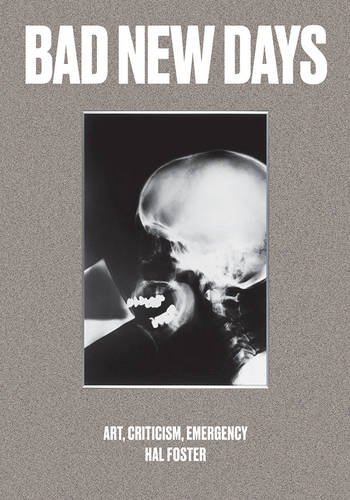Art Workers: Material Conditions and Labour Struggles in Contemporary Art Practice (2015)
Filed under book | Tags: · activism, art, contemporary art, economics, labour, precarity, resistance, social movements

“The Art Workers book presents case studies from the local art contexts of Estonia, Finland and Sweden, collects artist-testimonies, discusses activist practices and maps out contemporary and historical forms of organising within the international art field.
The Art Workers identity typography is a grotesk, a typeface originating from industrialism, combined with the digitally manipulated DIY aesthetics of our time. The typography reflects the urgency of handmade signage made for protesting, and nods towards the working class movement in the beginning of industralisation.”
With contributions by Corina L. Apostol, Michael Baers, Fokus Grupa, Minna Heikinaho, Vladan Jeremić, Elina Juopperi, Jussi Kivi, Barbora Kleinhamplová, Jussi Koitela, Raakel Kuukka, Marge Monko, Zoran Popović, Precarious Workers Brigade, Taaniel Raudsepp & Sigrid Viir, Krisdy Shindler, Tereza Stejskalová, Lotta Tenhunen.
Edited by Minna Henriksson, Erik Krikortz and Airi Triisberg
Publisher Konst-ig, Stockholm, 2015
Creative Commons BY-NC-SA license
ISBN 9789163779466
232 pages
Hal Foster: Bad New Days: Art, Criticism, Emergency (2015)
Filed under book | Tags: · abject, aesthetics, archive, art, art criticism, art history, critique, dialectic, fetish, mimesis, neoliberalism, poststructuralism, precarity, theory

“Bad New Days examines the evolution of art and criticism in Western Europe and North America over the last twenty-five years, exploring their dynamic relation to the general condition of emergency instilled by neoliberalism and the war on terror.
Considering the work of artists such as Thomas Hirschhorn, Tacita Dean, and Isa Genzken, and the writing of thinkers like Jacques Rancière, Bruno Latour, and Giorgio Agamben, Hal Foster shows the ways in which art has anticipated this condition, at times resisting the collapse of the social contract or gesturing toward its repair; at other times burlesquing it.
Against the claim that art making has become so heterogeneous as to defy historical analysis, Foster argues that the critic must still articulate a clear account of the contemporary in all its complexity. To that end, he offers several paradigms for the art of recent years, which he terms “abject,” “archival,” “mimetic,” and “precarious.””
Publisher Verso, London and New York, 2015
ISBN 1784781460, 9781784781460
208 pages
Presentation and discussion (video, The Kitchen, NYC, Sep 2015)
Interview (John Douglas Millar, Mute, Nov 2015)
Reviews: Mark Steven (Affirmations 2015), Brian Dillon (Guardian 2015), Rachel Wetzler (ArtNews 2015).
Comment (1)Gerald Raunig: A Thousand Machines: A Concise Philosophy of the Machine as Social Movement (2008–) [Spanish, English]
Filed under book | Tags: · abstract machine, activism, film, labour, machine, philosophy, precariat, precarity, protest, social movements, theatre, war

“In this “concise philosophy of the machine,” Gerald Raunig provides a historical and critical backdrop to a concept proposed forty years ago by the French philosophers Félix Guattari and Gilles Deleuze: the machine, not as a technical device and apparatus, but as a social composition and concatenation. This conception of the machine as an arrangement of technical, bodily, intellectual, and social components subverts the opposition between man and machine, organism and mechanism, individual and community. Drawing from an unusual range of films, literature, and performance—from the role of bicycles in Flann O’Brien’s fiction to Vittorio de Sica’s Neorealist film The Bicycle Thieves, and from Karl Marx’s “Fragment on Machines” to the deus ex machina of Greek drama—Raunig arrives at an enhanced conception of the machine as a social movement, finding its most apt and concrete manifestation in the Euromayday movement, which since 2001 has become a transnational activist and discursive practice focused upon the precarious nature of labor and lives.”
First published in German as Tausend Maschinen. Eine kleine Philosophie der Maschine als sozialer Bewegung, Turia + Kant, Vienna, 2008.
English edition
Translated by Aileen Derieg
Publisher Semiotext(e), 2010
Intervention series, 5
ISBN 1584350857, 9781584350859
128 pages
Publisher (EN)
Mil máquinas. breve filosofía de las máquinas como movimiento social (Spanish, trans. Marcelo Expósito, 2008, added 2014-3-16)
A Thousand Machines: A Concise Philosophy of the Machine as Social Movement (English, trans. Aileen Derieg, 2010, 19 MB, updated on 2017-6-26)

